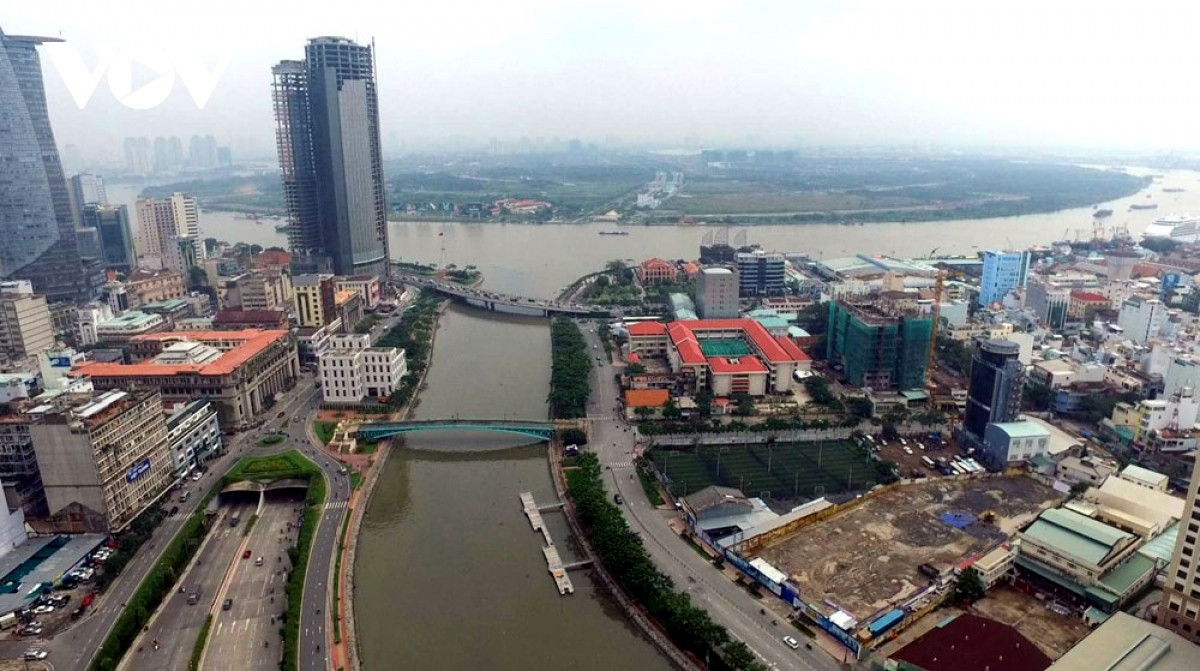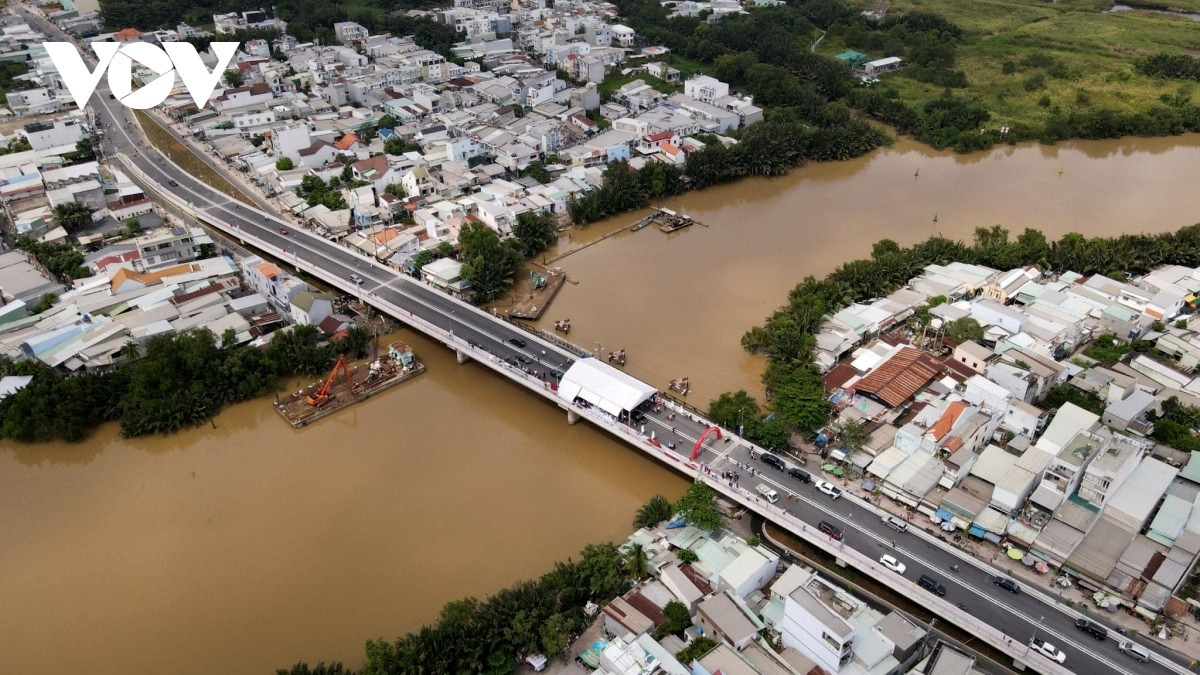
Despite facing global headwinds, Ho Chi Minh City, the country’s largest economic-financial centre that was hardest hit by the COVID-19 pandemic in 2021-2022, secured high growth in 2023, creating an essential prerequisite for the city to move ahead in 2024 and beyond.
Barriers from headwinds

Ho Chi Minh City bore the brunt of the COVID-19 pandemic, with its economy experiencing a contraction in 2021 before rebounding relatively strongly in the following year. However, before the economy could gather full steam, it faced global headwinds, including the economic downturn, pandemic consequences, strategic competition among major global powers, armed conflicts, the resilience and adaptation of developing countries, climate change, natural disasters, and epidemics.
The first quarter of 2023 witnessed the southern city secure gross regional domestic product (GRDP) of only 0.7%, the lowest among the five centrally run cities. Public investment is considered to be a driving force for economic growth, but in a difficult context, the city could only disburse about 4% of the allocated total.
In an effort to further spur economic growth, the municipal administration implemented a series of solutions, including increasing dialogues aimed at ironing out business snags, introducing policies aimed at stimulating consumption and tourism, promoting regional connectivity, and accelerating drastic administrative reform.
Those policies paid off as they helped the local economy to reverse the slowdown, with GRDP expanding by 5.87%, 6.71%, and 9.62% in the following three quarters of the year, ranking second among the five centrally run cities by the year’s end.
The strong economic recovery of Ho Chi Minh City, the country’s locomotive, has built up confidence in society, especially in other localities that were also grappling with global headwinds, said economic expert Dr. Tran Nguyen Dan of the University of Economics in Ho Chi Minh City.
Improving the efficiency of public services

In 2023, the city aimed to enhance the general efficiency of public services, promote administrative reform, and improve the investment environment. The view was that with poor public services, administrative activities had become stagnant and the investment environment was therefore difficult to improve.
According to Assoc. Prof., Dr. Vu Tuan Hung, deputy director at the Institute of Social Sciences in the Southern Region, public services revealed shortcomings in practice after the COVID-19 pandemic which created barriers hampering local development. When digital transformation was introduced, public services were required to make change in order to create a conducive investment environment.
However, deliberate policies later introduced along with the strict assessment of the efficiency of civil servants’ performance closely associated with their responsibility brought about good results. The rate of public investment disbursement increased considerably, rising from just 4% in the first quarter to 23% in the second quarter, 35% in the third quarter, and 60% in the last quarter of 2023. The southern city also attracted approximately US$3.4 billion in foreign direct investment (FDI) capital, accounting for more than 14% of the country’s total FDI figure.
Moreover, 2023 also saw Ho Chi Minh City break ground and put into operation a number of key capital infrastructure construction projects, including the Ring Road 3 Project, the An Phu intersection project, the Nguyen Van Linh - Nguyen Huu Tho intersection project, and National Highway 50 expansion project. It also reactivated several key bridge projects such as Vam Sat 2 and Long Kieng that had been put on hold for several years due to different reasons, a move aimed at helping to ease traffic congestion and create greater momentum for local development on the outskirts of the city centre.
At a year-end review meeting for 2023, Nguyen Van Nen, secretary of the Ho Chi Minh City Party Committee, said the Party and State highly appreciated the southern city’s outstanding efforts in overcoming global headwinds, proving that the city’s post-pandemic recovery is currently on the right track.
Moving forward, this year is anticipated to present both opportunities and challenges, not only for Ho Chi Minh City, but for the whole country in general, with challenges forecast to outweigh opportunities. But the significant gains the city has recorded in governance administrative reform, public services, along with joint efforts of businesses and local residents, will help the city to weather global headwinds moving forward.
Source: VOV